| |||||
| Decades: | |||||
|---|---|---|---|---|---|
| See also: | |||||
Events in the year 2009 in Guinea-Bissau .
| |||||
| Decades: | |||||
|---|---|---|---|---|---|
| See also: | |||||
Events in the year 2009 in Guinea-Bissau .
| | This section is empty. You can help by adding to it. (January 2011) |
Guinea-Bissau was at the Lusophony Games: Guinea-Bissau at the 2009 Lusophony Games.

The politics of Guinea-Bissau take place in a framework of a semi-presidential representative democratic republic, with a multi-party system, wherein the President is head of state and the Prime Minister is head of government. Executive power is exercised by the government. Legislative power is vested in both the government and the National People's Assembly.
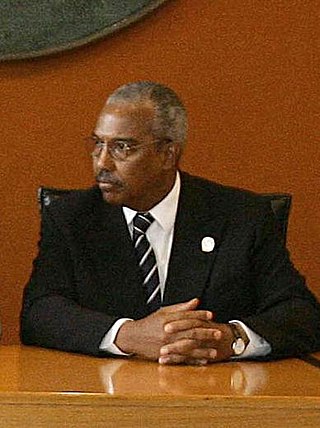
Henrique Pereira Rosa was a Bissau-Guinean politician who served as interim President of Guinea-Bissau from 2003 to 2005. He was born in 1946 in Bafatá.

Luís Severino de Almeida Cabral was a Bissau-Guinean politician who was the first President of Guinea-Bissau. He served from 1974 to 1980, when a military coup d'état led by João Bernardo Vieira deposed him. Luís Cabral was a half-brother of Amílcar Cabral, with whom he co-founded the African Party for the Independence of Guinea and Cape Verde (PAIGC) in 1956.
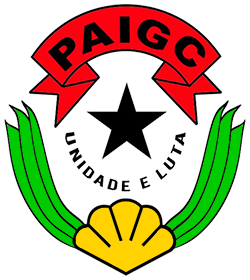
The African Party for the Independence of Guinea and Cape Verde is a political party in Guinea-Bissau. Originally formed to peacefully campaign for independence from Portugal, the party turned to armed conflict in the 1960s and was one of the belligerents in the Guinea-Bissau War of Independence. Towards the end of the war, the party established a socialist one-party state, which remained intact until multi-party democracy was introduced in the early 1990s. Although the party won the first multi-party elections in 1994, it was removed from power in the 1999–2000 elections. However, it returned to office after winning parliamentary elections in 2004 and presidential elections in 2005, since which it has remained the largest party in the National People's Assembly.

João Bernardo "Nino" Vieira was a Bissau-Guinean politician who served as President of Guinea-Bissau from 1980 to 1999, except for a three-day period in May 1984, and from 2005 until his assassination in 2009.
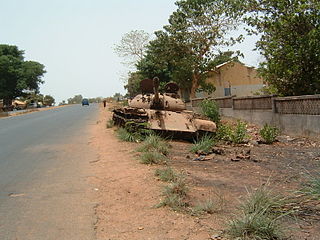
The Guinea-Bissau Civil War was fought from 7 June 1998 to 10 May 1999 and was triggered by an attempted coup d'état against the government of President João Bernardo Vieira led by Brigadier-General Ansumane Mané. Government forces, backed by neighbouring states, clashed with the coup leaders who had quickly gained almost total control over the country's armed forces.

Elections in Guinea-Bissau take place within the framework of a multi-party democracy and a semi-presidential system. Both the President and the National People's Assembly are directly elected by voters.
João Vieira may refer to:

Presidential elections were held in Guinea-Bissau on 19 June 2005, with a second round runoff on 24 July. The elections marked the end of a transition to democratic rule after the previously elected government was overthrown in a September 2003 military coup led by General Veríssimo Correia Seabra. The result was a victory for former president and independent candidate João Bernardo Vieira.

Malam Bacai Sanhá was a Guinea-Bissau politician who was President of Guinea-Bissau from 8 September 2009 until his death on 9 January 2012. A member of the African Party for the Independence of Guinea and Cape Verde (PAIGC), Sanhá was President of the National People's Assembly from 1994 to 1999 and then served as acting President of Guinea-Bissau from 14 May 1999, to 17 February 2000, following the ouster of President João Bernardo Vieira. Standing as the PAIGC candidate, he placed second in the 1999–2000 presidential election as well as the 2005 presidential election before winning the June–July 2009 presidential election.
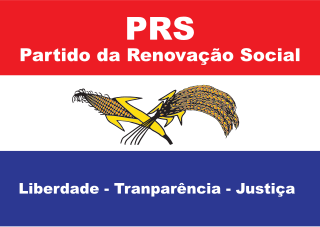
The Party for Social Renewal is a political party in Guinea-Bissau. It is one of the country's leading parties and is currently the main opposition party.
Manuel Saturnino da Costa was a Bissau-Guinean politician who served as Prime Minister of Guinea-Bissau from 26 October 1994 to 6 June 1997.
Carlos Correia was a Bissau-Guinean politician who was Prime Minister of Guinea-Bissau from 17 September 2015 to 12 May 2016. Previously he was Prime Minister from 27 December 1991 to 26 October 1994, from 6 June 1997 to 3 December 1998, and from 5 August 2008 to 25 December 2008.

Aristides Gomes is a Bissau-Guinean politician who was the Prime Minister of Guinea-Bissau from 8 November 2019 until 28 February 2020. He previously served as Prime Minister from April 2018 to October 2019, and again from 2 November 2005 to 13 April 2007. He has subsequently served as President of the Republican Party for Independence and Development (PRID).
Martinho Ndafa Kabi is a Bissau-Guinean politician who was the prime minister of Guinea-Bissau from 13 April 2007 to 5 August 2008. He is a leading member of the African Party for the Independence of Guinea and Cape Verde (PAIGC).

Raimundo Rodrigues Pereira is a Bissau-Guinean lawyer and politician who was interim President of Guinea-Bissau from 3 March 2009 to 8 September 2009 and again in 2012, following the departure of President Malam Bacai Sanhá for medical treatment abroad; he continued in that capacity after Sanha's death. Pereira was elected as President of the National People's Assembly on 22 December 2008. Pereira is a member of the African Party for the Independence of Guinea and Cape Verde (PAIGC). He was ousted in a coup on 12 April 2012 and succeeded by Mamadu Ture Kuruma.
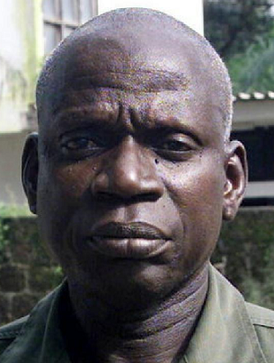
General Batista Tagme Na Waie, also transliterated as Batista Tagme Na Wai, was chief of staff of the army of Guinea-Bissau until his assassination in 2009.

Presidential elections were held in Guinea-Bissau on 28 June 2009 following the assassination of President João Bernardo Vieira on 2 March 2009. As no candidate won a majority in the first round, a second round was held on 26 July 2009 between the two leading candidates, Malam Bacai Sanhá of the governing African Party for the Independence of Guinea and Cape Verde (PAIGC) and opposition leader Kumba Ialá. Sanhá won with a substantial majority in the second round, according to official results.

The 1980 Guinea-Bissau coup d'état was the bloodless military coup that took place in Guinea-Bissau on 14 November 1980, led by Prime Minister General João Bernardo Vieira. It led to the deposition of President Luís Cabral, who held the office since 1973, while the country's War of Independence was still ongoing.

Brazil–Guinea-Bissau relations are the bilateral relations between the Federative Republic of Brazil and the Republic of Guinea-Bissau. Both nations are members of the Community of Portuguese Language Countries, Group of 77 and the United Nations.